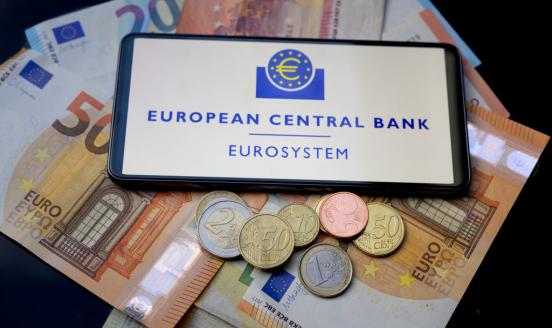Croatia’s path into the banking union
Croatia seems a suitable candidate for euro area accession: there is a tight peg to the euro, high public debt is coming down, and the banking sector

Last week, the Eurogroup set out the criteria for Croatia to enter the ERM II (the European Exchange Rate Mechanism), designating the country the second candidate to accede to the common currency. As in the case of Bulgaria one year ago, a period of close cooperation with the ECB will precede participation in the ERMII. During this time the banking sector will undergo an asset quality review and stress test, which will be run jointly with the ECB.
Government and central bank also committed to six areas of reform. These seem well- targeted, and are backed by an action plan and specific deliverables set by the government and central bank. Only once ECB and the Commission have confirmed that these reforms have been delivered will ERM II participation and banking union membership begin.
In terms of monetary and exchange rate policy ERM II participation should present few headaches (again, this is similar to Bulgaria which operates a currency board). The exchange rate of the kuna is pegged to the euro within a narrow band, reflecting the significant use of the euro in bank assets in the private sector. The cost-benefit analysis published by the central bank and government last year underlined the gains from eliminating currency mismatches in bank lending, and the remaining exchange rate risk, and access to ECB liquidity.
The banking sector is also already closely aligned with the euro area. Subsidiaries of two Italian banks and of two Austrian banks jointly account for close to two thirds of banking sector assets. Among the seven countries that have joined the euro area since 2007, only Slovakia and Estonia have a more significant foreign bank presence in their local markets. Through their participation in the colleges of supervisors assembled for each significant euro area banking group the Croatian banking authorities will already be closely familiar with ECB policies. Membership in the banking union would eliminate the parallel supervision by the host country authority, though as in other euro area countries national exemptions could perpetuate some ring-fencing of capital and liquidity. Independent crisis management policies and bank resolution strategies would now be merged within the banking union.
The legacy of state dominance is relevant for convergence
But Croatia’s long-running structural rigidities show why the original Maastricht convergence criteria are inadequate to assess candidates that have emerged from decades of state-dominated planned economies. Some of the planned reforms seem integral to the banking union (such as the cooperation with the ECB on stress tests, expanding the toolkit for financial system supervision, or strengthening anti-money laundering legislation). Two other criteria stand out for tackling some long-running weaknesses in Croatia:
The first is public sector governance. Croatia’s roughly 1,100 state-owned enterprises are among the most significant in emerging Europe (in terms of assets in GDP, and in the middle of this peer group in terms of employment and value added). Low efficiency and continual losses result in substantial fiscal costs and contingent liabilities for the state, contributing to the still fairly high public debt ratio of 70 per cent of GDP. This is no doubt a concern for sustainable macroeconomic convergence within the currency union. The country is engaged in the process of strengthening public asset governance, identifying non-strategic companies and other minority stakes for sale, and removing political intervention from the management of firms. As Croatian SoEs are unusually numerous and widely spread across various sectors this is an obvious, if protracted, agenda. The de-politicisation of the civil service, a further commitment in the letter to the Eurogroup, is no doubt desirable, though neither easily verified nor open to quick results.
The second is red tape. A further commitment targets a reduction in the burden from para-fiscal charges, administrative obligations for entrepreneurs, and a liberalisation of certain professions. Again, this targets a key rigidity, and World Bank indicators underline the fragmentation of administrative bodies and costs of excessive red tape. Yet, this is only one aspect of a generally difficult business environment. Possible solutions, such merging different administrative bodies, the use of electronic hubs or a simplification of approval processes, will not be implemented swiftly.
Incentives for sustained reforms
The commitment of the Croatian authorities to euro area membership, and support among the public, seem strong. The agreement with the Eurogroup may now catalyse some long overdue reforms of the state’s involvement in the economy which could relieve the budget of ongoing liabilities and bolster trend growth that has lagged that of other countries in central Europe.
Croatia’s record of structural reforms since EU accession in 2011 has been mixed at best. Reform of the SoEs and excessive administrative burden have repeatedly been flagged in the Commission’s country-specific recommendations (and the latest assessment diagnosed ‘limited progress’ and ‘no progress’, respectively).
In the coming year or so ECB and Commission will need to assess progress on these reforms, some of which have occupied the Croatian authorities since EU accession in 2011. Some fairly specific deliverables for reducing the role of the state have been proposed, though this is no more than a start.
The short process leading up to ERMII entry, and Commission and ECB monitoring of country commitments, seem poorly equipped to overcome the reform backlog in those EU members in central and south eastern Europe which are as yet outside the euro. A more pro-active and better targeted use of the Commission’s Structural Reform Support Services could accompany this process. Ultimately, stronger incentives for the implementation of country-specific recommendations should be set.



